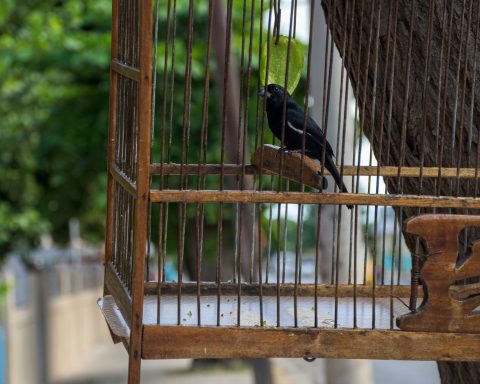On Monday 28, Tuesday 29 and Wednesday 30 November, the new Higher Education Access Test (PAES) will be applied for the first time, which will permanently replace the old PSU and the transitory PDT. This new instrument will assess the competencies of those who take it, integrating skills and knowledge necessary for success in university education. Likewise, it contemplates agendas in accordance with the curricular prioritization carried out by the Ministry of Education and which considers the educational effects of the pandemic.
The Undersecretary of Higher Education, Verónica Figueroa Huencho, explains that “these tests are the result of work carried out jointly with the Technical Committee for Access to the University Subsystem with the purpose of moving towards a more equitable and fair access system, which puts to the center to the applicants and that, in addition, recognizes the diversity of their talents”.
For her part, the director of DEMRE, Leonor Varas, emphasizes that “the main thing in these days prior to the surrender of the PAES is that the young people share with their friends, with their classmates, that they practice if they want, but that they also distract themselves, rest and eat well. The test is important, but life is not lost on it. There are more opportunities and options, and life takes many turns.
More than 275,000 people are registered to take this first version of the PAES. On Saturday, November 26, starting at 9:00 a.m., you can download your Identification Card from acceso.mineduc.cl and www.demre.cl, where the location and surrender room will be detailed. Each applicant must download it, print it and bring it with them on the day of the application.
Recommendations for the SEAP
This year, a new Mathematics test is included, therefore, the rendition will take place over three days. The order of taking the tests will no longer be the one that was traditionally used, therefore, it is important that the applicants are very clear about the day and time that each exam will be applied:

Some advices:
- Since for the first time in two years there are no sanitary restrictions, the call is for the applicants to take care of their health in the days before. The use of a mask is optional and both the entrances and exits of premises will be separated and marked.
- It is not allowed to eat food during the surrender or share personal items.
- It is recommended to arrive 15 minutes before the start of the application and it is suggested that the students know the route to the place well so that they plan their trip in advance.
- Each applicant must bring their Chilean identity card or passport, as appropriate, graphite pencil No. 2 or HB mechanical pencil, eraser and their printed identification card.
- Entry with electronic devices such as cell phones, tablets, calculators, cameras and smart watches, among others, will not be allowed.
- Nor will they be able to enter with wallets, bags, backpacks or any element that is not necessary during the test.
Five recommendations before taking the PAES
Natalia Cortés G., sociologist and Coordinator of the UACh Learning Support Unit, highlights that the main differences between the PAES, PSU and the PDT are focused on the change in orientation of the questions, the incorporation of another test, the possibility of perform in winter and summer, in addition to the modification in the weighting of the scores.
These innovations are proposed under the logic of competency assessment, more than just content. On the other hand, the incorporation of a second mathematics test (M2) differs from the compulsory mathematics test (M1) since it measures content and skills from 7th grade to 2nd grade. For this reason, M2 remains with a higher level of specificity, considering syllabi for 3rd and 4th grade, and it is also required only for some careers.
To face this test in a better way, Natalia Cortés gives five recommendations:
- Your skills will be important in this test, regardless of whether or not you know a specific formula. The PAES is oriented towards knowing how to be and knowing how to do; reasoning, comprehension and problem solving, for which it is expected that distances between students who come from establishments from different contexts will be shortened.
- Being relaxed when taking the PAES seems easy to say, but difficult to achieve. However, the possibility of being able to take a winter test takes pressure off and adds an extra possibility, considering it as a plan B. In this same sense, for this admission process the scores from the November 2021, winter 2022 test will be considered. and the one who gives up now. The scores will be weighted according to the best scores obtained, being able to mix them.
- The vocational choice and that conversation that can sometimes become uncomfortable with the family is important to face a test in “tranquility”. For this reason it is important to talk about their interests, motivations, future prospects and expectations that -sometimes- disagree between parents and children.
- In this admission process they will be able to apply for up to 20 degrees, but it is vital to consider the order of those preferences and it is better to have that family conversation before facing the PAES. On the other hand, it is necessary to consider the submission of M2 as mandatory for some races, since in case they have not registered it, they can still take it, but for that they must know if it is a requirement in their preferred races.
- Finally, remind students that the value of each one is not placed on a test that is given in 3 days. The value of each one is inside, in their personalities, in their interactions and bonds. The most important thing is that they take the test with the conviction that changes have been made that seek progress in access to higher education, advancing in quality and equity.
Experts emphasize the importance of rest and healthy habits to perform a good PAES
Micheline Silva, Differential Educator of the Student Medical Service of the DAE PUCV, highlighted the importance of avoiding the overstimulation of news about the subject of the test, especially on the same day, since these can increase nervousness and anxiety. In addition, she emphasized that it is not necessary or productive to study the last days and that rest and good sleep should be relied on. “When we are at rest, our brain continues to process information and make connections related to what has been studied,” she clarified.
On the other hand, he indicated that the implementation of a clear routine and healthy habits favors memory and helps reduce stress levels, since they give the sensation of having situations under control. “Implementing routines that help manage emotions is key, for example, writing a diary, watching series, listening to music and sharing how you feel with people close to you. This helps us to complete the cycles of stress, giving closure to the situations that are worrying us and avoiding a collapse in the same evaluation or later. The important thing about the above is that stress makes us release large amounts of cortisol, which, at a cognitive level, can block access to memory and our attention span, ”she said.
In this same line, the academic from the School of Physical Education of the PUCV, Fernando Rodríguez recommends that to face the end-of-year evaluations it is ideal to exercise at least one hour a day and eat well, avoiding the consumption of fatty foods. saturated that affect intestinal health: “The body needs to oxygenate itself, sweat, release stress. It is necessary to look for activities not only the day before, but ideally about 15 days before the measurement. Move, walk, ride a bicycle, jog, swim or do some intense exercise, which allows you to keep stress or anxiety levels under control and the body in good condition so that you can perform in those long days sitting during the test rendition ” , ended.


















